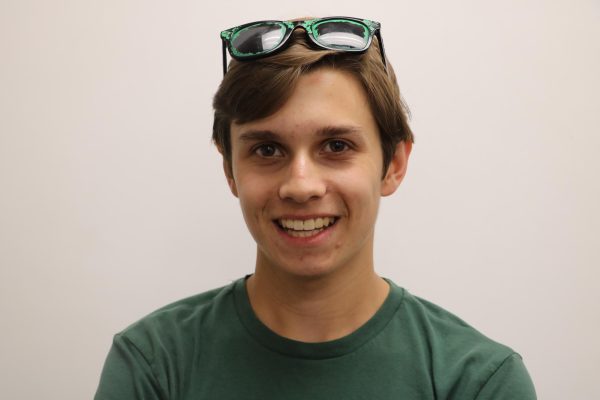A powerful line from “What Every Soldier Should Know,” a poem by Brian Turner, reads, “If you hear gunfire on a Thursday afternoon, it could be for a wedding, or it could be for you.” His words offer a beautifully dark portrayal of the horror and anguish he experienced during the Iraq War. The book in which this poem was featured, “Here, Bullet,” would go on to earn Turner a modest amount of fame and prestigious accolades such as the 2005 Beatrice Hawley Award. This success was built on the exploration of his personal grief, a theme that has persisted throughout his life.
Subsequently, Turner has published four more poetry compilation books. His writings have been featured by prominent outlets, including National Geographic and The New York Times. His body of work also includes music and albums.
This semester, Turner plans to visit the College of Central Florida Ocala Campus on Apr. 3 as part of the Debra Vasquez Memorial Poetry Series. He will be reading his poetry, followed by a book signing and Q&A session in building 8, room 110 starting at 12:30 p.m. Before then, let’s take a look at his journey, a story that is relatable to many.
Turner’s story began when he was a young boy of elementary school age. He moved from the bustling city of Fresno, CA to a quiet homestead in Madera County. Secluded, he would frequently spend time in his backyard, honing his musical talent on the trumpet. The contrast between his mundane surroundings and the captivating sounds of his instrument had a profound effect on him artistically. In an interview with Poets & Writers Magazine, Turner described himself as being “more attuned to the auditory landscape than the visual one.”
Like the students of CF, Turner started his higher education locally at Fresno City Community College. He would later move on to Fresno State University, where he earned his Master in Arts (MA) degree. Eventually, he would end up leaving his home state of California to attain a Master in Fine Arts (MFA) degree at the University of Oregon. This would open doors that allowed him to travel and teach across the world.
While his education helped Turner establish himself, it was his time in the U.S. Army that would be the turning point in his life. During the controversial Iraq War, Turner served under the 3rd Stryker Brigade as an infantry leader. Like many soldiers, the horrors of the experience left a significant mark on him. To keep his mind occupied, Turner channeled these feelings into poems he wrote during his downtime between missions. It was these works that would be compiled into “Here, Bullet.”
Five years after the publication of “Here, Bullet,” Turner settled down with the love of his life, Ilyse Kusnetz. The two shared poetry in common. Kusnetz wrote her own collection, “Small Hours,” which also received acclaim and awards. Unfortunately, their time together would be cut short. Nearly six years after their marriage began, Kusnetz tragically passed away from cancer.
Heartbroken by Kusnetz’s death, Turner would once again cope through his creativity. This time, he would revisit his roots in the world of sound. Turner recalled to Poets & Writers Magazine that he “simply wanted to hear her voice.” This led to the creation of “11 11 (Me Smiling),” an experimental album heavily featuring archive voice recordings of Kusnetz reading her own works of poetry.
Turner’s work is exemplary of art in its purest form: human emotions and experiences turned into compelling expressions. His life contains elements people from many different walks of life can connect with, including artists, community college students, soldiers and veterans, as well as those who have experienced loss and grief. He could be argued as one of the most important poets of our time, and it will certainly be an honor to welcome him to CF.
This article was updated with newer information pertaining to this event.




